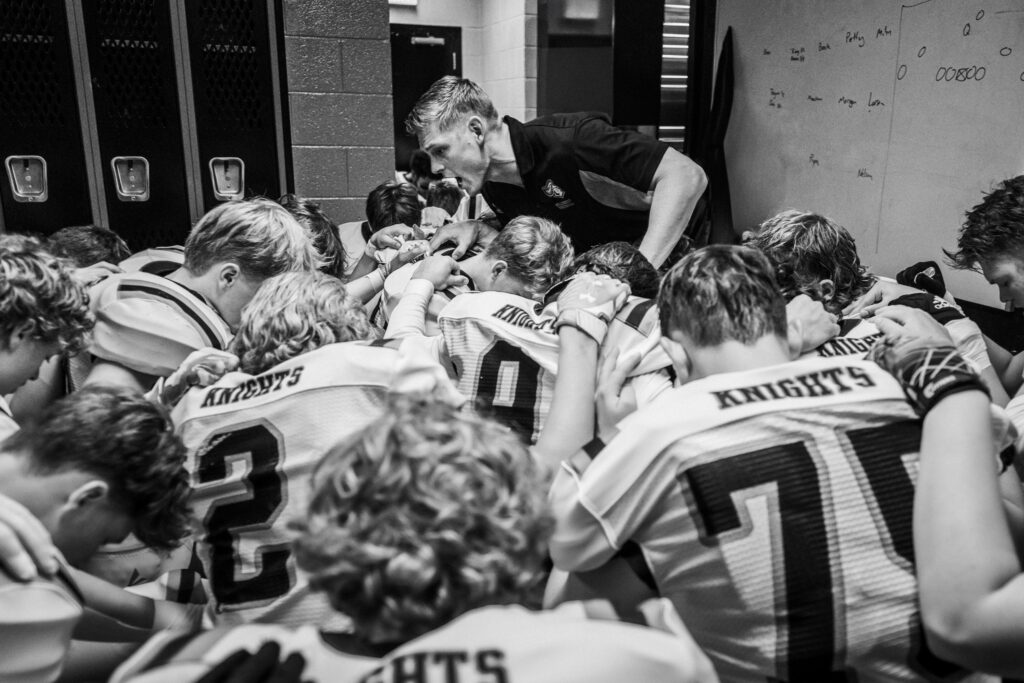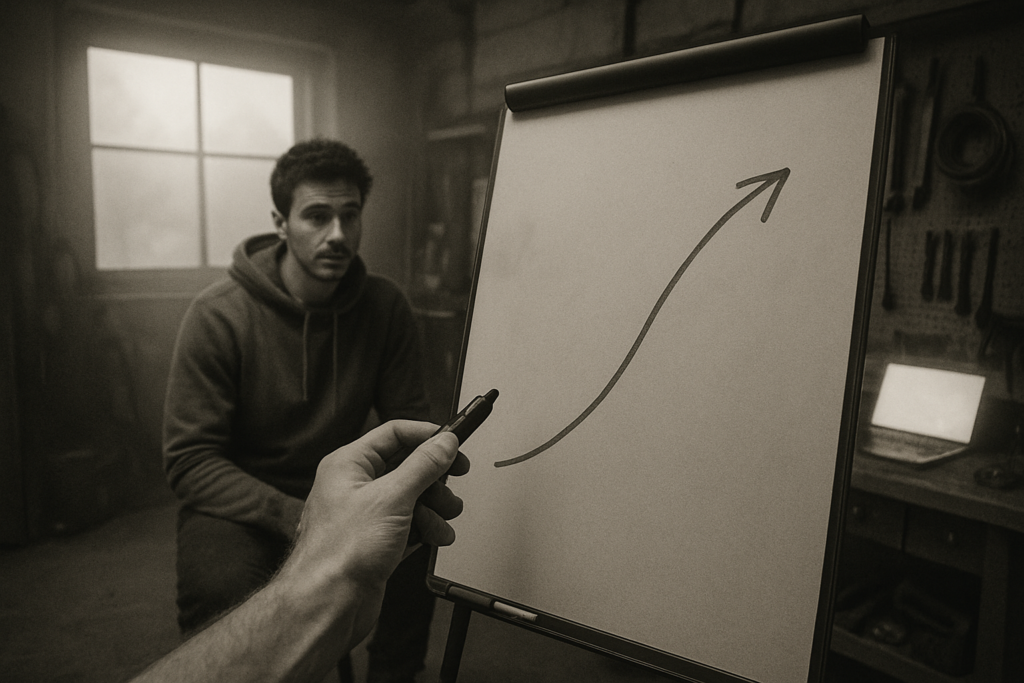In the world of coaching, the journey doesn’t end with a championship trophy or a successful season. It’s a continuous path of growth and learning that defines the best coaches. I’ve seen firsthand how those who embrace lifelong learning not only enhance their skills but also inspire their teams to reach new heights.
Great coaches understand that the game evolves, and so must they. By seeking new knowledge, techniques, and perspectives, they stay ahead of the curve and cultivate a culture of excellence. In this article, I’ll explore why continuous learning is essential for coaches and how it impacts their effectiveness and the success of their teams.
Let’s dive into the mindset that keeps great coaches thriving.
Understanding Continuous Learning
Continuous learning involves actively seeking knowledge and skills to foster personal and professional growth. Coaches who commit to this process not only enhance their capabilities but also set a powerful example for their teams.
Definition and Importance
Continuous learning refers to the ongoing, voluntary, and self-motivated pursuit of knowledge. Its importance lies in the ever-changing nature of sports, where strategies, technologies, and athlete needs continually evolve.
Great coaches recognize the necessity of adapting to these changes in order to remain effective. Embracing continuous learning allows coaches to stay relevant and informed, which ultimately enhances their leadership and decision-making skills.
Benefits for Coaches
- Skill Enhancement: Continuous learning equips coaches with the latest techniques and strategies, improving their coaching abilities.
- Increased Adaptability: Learning new concepts allows coaches to adapt their approaches based on emerging trends and athlete feedback.
- Improved Team Dynamics: Coaches who prioritize learning often create a culture that values growth and development, positively impacting team morale.
- Enhanced Problem-Solving: Gaining new insights fosters better problem-solving capabilities, enabling coaches to respond effectively to challenges.
- Networking Opportunities: Engaging in courses, workshops, or seminars leads to networking with other professionals, expanding knowledge and resource access.
- Inspiration for Athletes: A commitment to learning sets a powerful example, motivating athletes to pursue their own growth and development.
Prioritizing continuous learning ultimately empowers coaches to foster a more successful and cohesive team environment.
The Mindset of Great Coaches
Great coaches cultivate a mindset focused on growth and adaptability. They understand that continuous learning is essential to remain effective in their roles.
Embracing a Growth Mindset
Great coaches embrace a growth mindset, viewing challenges as opportunities for development. They actively seek feedback from players and peers, recognizing that constructive criticism enhances their coaching abilities.
Great coaches engage in professional development, attending workshops and seminars to discover new strategies and methodologies. This mindset not only fosters individual improvement but also inspires athletes to adopt similar perspectives on their own growth, creating a culture of constant enhancement within the team.
Learning from Failure
Great coaches view failure as a critical component of the learning process. They analyze mistakes thoroughly, treating losses not as setbacks but as valuable lessons. By discussing these failures openly, they create an environment where athletes feel safe to take risks and innovate.
Great coaches encourage teams to reflect on their performance, identifying areas for improvement and adjusting tactics accordingly. This proactive approach to learning from failure leads to resilience and better performance in future competitions.
Strategies for Continuous Learning
Continuous learning involves various strategies that great coaches can implement to enhance their skills and effectiveness.
Formal Education and Certifications
Pursuing formal education and certifications provides coaches with structured learning opportunities. I can enroll in advanced degree programs, such as a Master’s in Sports Coaching or Sports Management, to deepen my understanding of coaching principles and strategies.
Obtaining relevant certifications, like those from the National Federation of State High School Associations (NFHS) or the American Coaching Academy, ensures I stay updated with industry standards and best practices. These credentials not only boost my knowledge but also enhance my credibility among athletes and peers.
Networking and Mentoring
Building a strong professional network is essential for continuous learning. I engage with other coaches by attending conferences, workshops, and meetups, allowing me to exchange ideas and experiences.
Forming relationships with mentors—experienced coaches or sports professionals—offers valuable insights and guidance. Regularly seeking feedback from mentors helps me identify blind spots and refine my approach. Collaborating with other coaches fosters a culture of shared learning, driving innovation and improving team performance.
Real-Life Examples of Coaches
Numerous coaches exemplify the power of continuous learning, showcasing how commitment to personal growth drives team success. Their real-life experiences provide significant insights into effective coaching practices.
Case Studies of Successful Coaches
- Phil Jackson: Known for winning 11 NBA championships, Phil Jackson applied Buddhist principles in his coaching. He emphasized mindfulness and team cohesion, integrating psychology into strategy, which fostered a positive team culture. Continuous study of Eastern philosophies enabled Jackson to connect with his players on a deeper level.
- Anson Dorrance: As the head coach of the University of North Carolina women’s soccer team, Anson Dorrance expanded his knowledge through research on motivation and leadership. He implemented techniques based on psychological principles, creating a learning-centric environment. His commitment to ongoing education played a crucial role in securing 22 NCAA championships.
- Nick Saban: Head football coach at the University of Alabama, Nick Saban emphasizes adaptability in an evolving sport. He invests time in analyzing game footage and attending coaching clinics. Saban’s pursuit of innovative strategies has led to seven national championships, underscoring the importance of continuous learning in achieving excellence.
- Gina Auriemma: The UConn women’s basketball coach, Gina Auriemma, believes in lifelong learning through communication and feedback. By engaging in collaborative discussions and seeking mentorship, Auriemma consistently evolves her coaching methods, contributing to an unparalleled 11 national titles.
Lessons Learned from Their Journeys
- Embracing Change: Adapting to new trends keeps teams competitive. Coaches like Saban and Jackson demonstrate that embracing change through continuous education enhances team performance.
- Psychological Insights: Understanding player psychology improves team dynamics. Coaches such as Dorrance leverage psychological research to motivate athletes and build resilience.
- Collaborative Culture: Encouraging open communication fosters a learning environment. Auriemma emphasizes collaboration, attracting innovative ideas that translate into team success.
- Feedback Integration: Utilizing feedback effectively facilitates personal growth. Successful coaches actively seek feedback from players and peers, centered on the objective of continuous improvement.
- Strategic Innovation: Curating new strategies leads to sustained success. Continuous learning allows coaches like Jackson to develop unique approaches tailored to player needs.
These coaches exemplify how continuous learning not only enhances personal development but also catalyzes team success through improved dynamics, innovative strategies, and adaptive leadership.
The Role of Technology in Coaching
Technology plays a significant role in the continuous development of coaches. Various online resources and platforms provide coaches with innovative ways to enhance their skills and knowledge.
Online Resources and Courses
Numerous online resources and courses offer tailored learning experiences for coaches. Platforms like Coursera, edX, and Udemy feature courses on coaching techniques, sports psychology, and advanced strategies.
Coaches can access materials developed by industry experts, allowing them to stay current with evolving methodologies. For example, specialized courses in analytics can enable coaches to leverage data-driven insights.
Additionally, webinars hosted by professional coaching organizations offer real-time exchanges with coaches and experts worldwide, fostering immediate applicability of new concepts.
Utilizing Social Media for Learning
Social media serves as an invaluable tool for coaches seeking ongoing education. Platforms like Twitter, LinkedIn, and Instagram enable coaches to connect with top professionals and organizations in the sports industry.
Following thought leaders, engaging with relevant hashtags, and participating in coaching communities keep coaches informed about trends and best practices. For instance, Twitter chats provide opportunities for real-time discussions on coaching strategies.
Coaches can share their experiences and learn from diverse perspectives, enriching their knowledge base and fostering professional growth.




